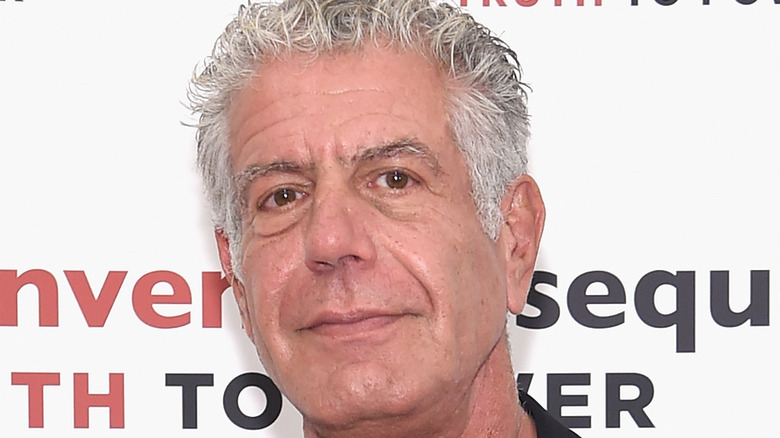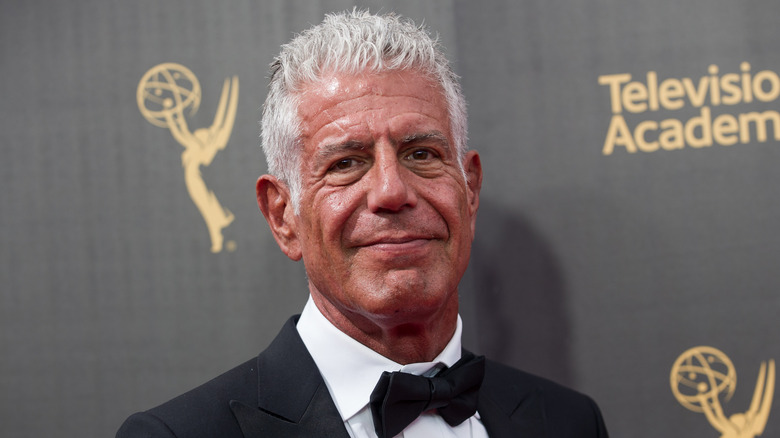How Anthony Bourdain Changed Food Writing, According To His Former Assistant
Anthony Bourdain was undoubtedly a towering figure in the world of food and travel writing. From his delightful debut in The New Yorker in 1999 to his body of work as a television host, Bourdain saw the world through his own discerning lens. Apart from his impact on viewers, he's also had a massive impact on those who follow in his footsteps.
Dan Doa wrote a piece on Bourdain for Esquire, saying, "It was truly Bourdain who showed so many like me that food writing could go beyond cookbook writing or restaurant reviewing — that it had the potential, as a form of travel journalism, to encapsulate hundreds of years of migration, trauma, and triumph into a single bite. Bourdain gave us a greater sense of obligation."
While true, Bourdain's former assistant, Laurie Woolever, spoke to Bourdain's impact after dedicating herself to releasing his posthumous book, "World Travel" (via Eater). "The whole craft and business of food writing and travel writing certainly changed quite a bit in the time that he was doing it," she explained. "In that 20-year stretch where he was making television, there was an enormous shift in the kinds of things that were being written about, the kinds of things that people were interested in, or that editors would allow. How much of that is Tony's doing is hard to break down." But Woolever feels he greatly contributed.
She felt Bourdain brought on an awareness
Much of what Bourdain did was to create an avenue for those without a way to share their stories, cuisine, and way of life with a mainstream audience. In her conversation with Eater, Woolever went on to add, "I will say that there was the sense that people had, and I had it too, this sense that he's paying attention and he's set the bar pretty high. If you do something great, he's going to probably shine a light on you and praise you. If you do something stupid, he's probably going to call you out on that too."
Woolever also explained that Bourdain wasn't interested in designating what is or isn't good. "But because he was so outspoken and fearless, any story that I pitched, I definitely thought, 'Would Tony be interested in this?" she continued. "Would Tony think this is stupid, or would he think it was a good idea?'" It seems Bourdain did play a role in the types of stories that are currently being shared.
While there are many types of food writing today ranging from lists of recipes that might use a single common ingredient or a list of the best restaurants to visit in any given city, Bourdain taught consumers and writers alike to push deeper. He showed that there is great value in exploring what was unknown to his audiences.

